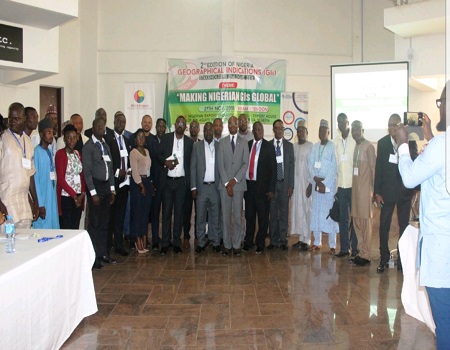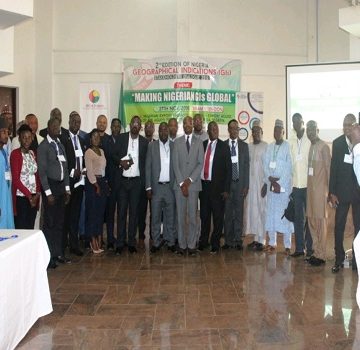Stakeholders at the dialogue who included government, private sector, development partners, civil society organisations, researchers, the media and a host of other stakeholders, observed that the absence of a GI system and protection mechanism of the intellectual property right of products of Nigerian origin has made it difficult to tap into the huge benefits of Nigeria’s GI products offer to the local and international space.
GIs apply to products that preserve local cultural practices and traditional knowledge in the production value chain, due to their territorial reliability and source of origin. GI products provide revenues and pride to millions of producers and SMEs around the world. These products preserve the culture of producers in the production value chain and play a key role in the sustainable development of the local communities. In Nigeria, there are so many products that are qualified to be considered as GIs products, which unfortunately are yet to be rated, due to lack of basic infrastructure, information and legal frameworks.
ALSO READ: FG, Stakeholders meet over sniper beans, to develop pesticide policy
In his opening remarks the Registrar, Trademarks, of the Federal Ministry of Industry, Trade and Investment, Shafiu Adamu Yauri (Esq) said the economic importance of geographical indications and their use in commerce in a modern, knowledge-driven market economy is not yet greatly appreciated.
“It is worthy to emphasise at the outset that without Geographical Indications protection, Nigeria cannot maximise its potentials in the sale and marketing of its highly prized and rich agricultural and other cultural products.” The Registrar warned that failure to protect the nation’s GIs will give room for abuse and possible loss of such rights.
“Wherever products are not protected by means of geographical indications, such products initially have no “geographical” market identity and are also deprived of benefiting from the goodwill associated with geographical indications and they remain open to abuse or exploitation by others.”
Europe has over 4,000 GI products while China alone has about 2000 products. China reached this achievement by identifying her area of comparative advantage. This Nigeria can also do and there exist very reach potentials that can make this possible.
The Founder and Chief Executive Officer (CEO) of the International Centre for Development Affairs, Dr Osita Aniemeka emphasised that getting a legal framework for the protection of GIs of Nigerian origin is not a difficult task.
“You cannot do anything without the input of Government. However, the Government must take the lead by aggregating stakeholders, such relevant government agencies and CSOs that have been advocating for GIs in the country to draft a policy framework within a period of six months,” Because dependency on oil alone as the driver of the Nigerian economy is not sustainable, it has become imperative that other sources of income are explored.
“Ministry of Petroleum’s report shows that there was oil fall in October, 2018 as both growth in output and new orders lost momentum, giving impetus to increased need for the country to diversify its economy as well as adhering to standardisation compliance with global trade protocols, which evolve sustainable international market for products of Nigerian origin”. Dr Osita explained.
“Africa has fallen behind and allowed the rest of the world to take advantage of those products which were originally from Africa and once you lose your GI rights, it is almost impossible to have them back because they become legally registered by another country as this will have a diplomatic dimension,” said the Executive Director of Africa International Trade and Commerce Research, Mr Sand Mba-Kalu.







